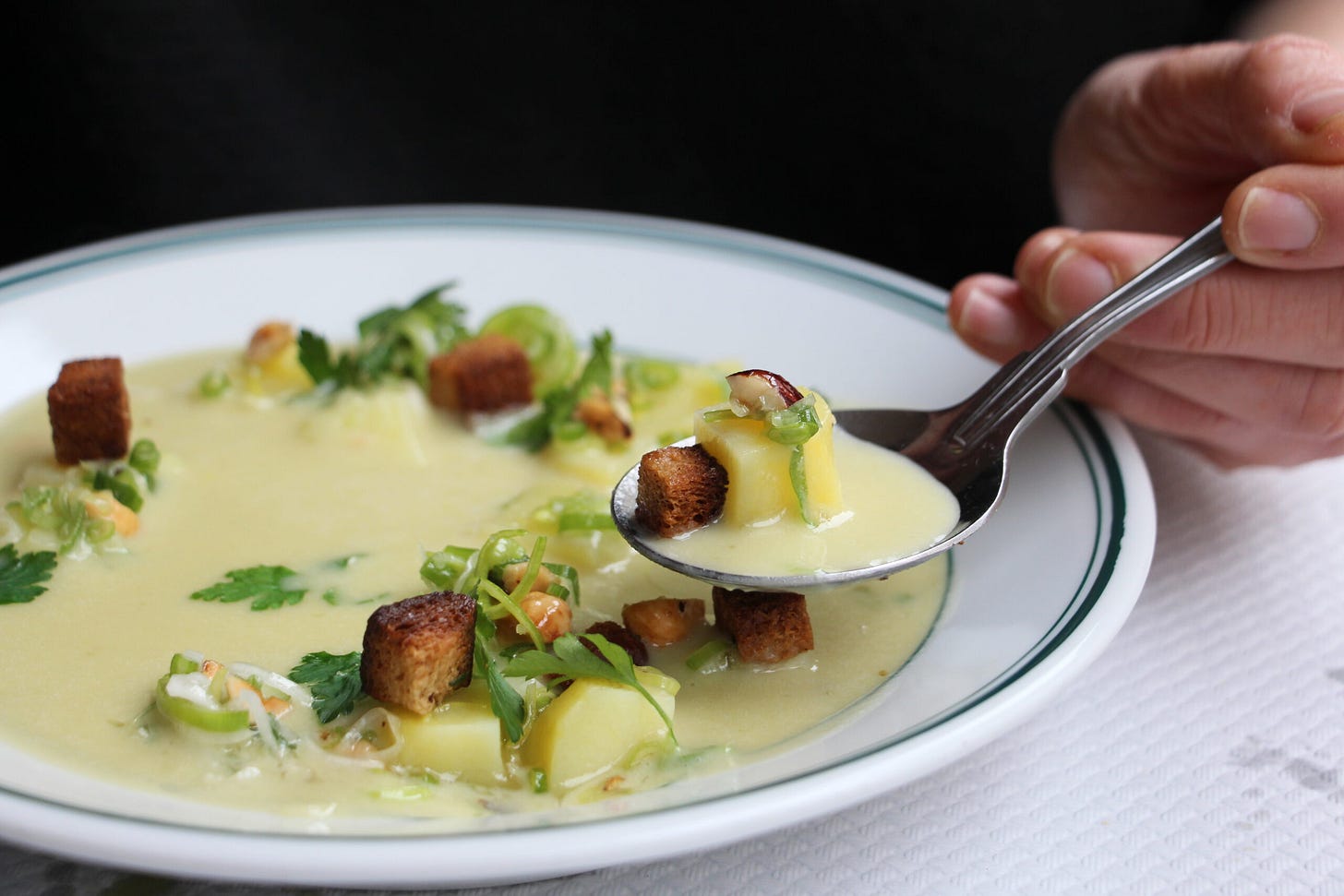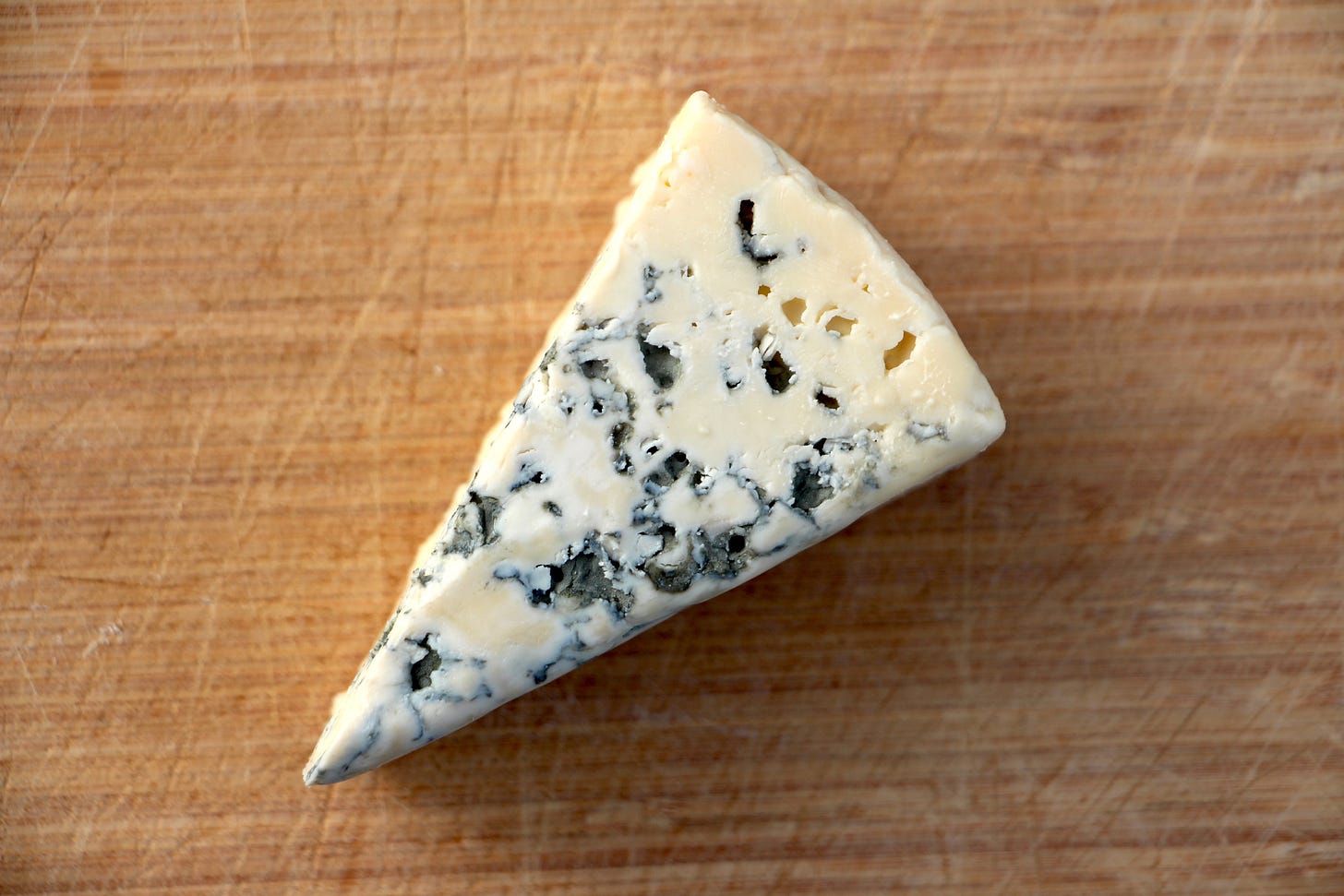Emily in France 🇫🇷 3 Things About France That Will Make You Insane
And why things are the way they are
In my 18 years in France, I’ve seen many expats come and nearly as many go. Often, the ones that don't make it were drawn here by a rose-colored image of the country and are ultimately driven away by what what Keith Christiansen calls "France Days" and my friend Allison Zinder calls “Welcome in France”: the strange quirks of culture and bureaucracy that make our lives that much more difficult.
But as I explore on my podcast, Navigating the French, these ire-inducing characteristics are actually inroads into a better understanding of French culture. Here are the ones most likely to make you want to tear your hair out… and what they really show us about the French.
1. No substitutions. Really.
This one is such common knowledge as to have become a trope: Dishes on French menus are not meant to be modified according to your preference. Steak is served rare; sandwiches are served cold. You cannot swap the side of mashed potatoes for French fries, sauce is not served on the side (unless it was the chef’s idea), and sometimes, the fishmonger will refuse to sell you salmon.
This isn't because the French are being snooty. (Or at least… it’s not only because the French are being snooty.) To my mind, there are a few cultural oddities at play here.
The first is that French culture holds an incredible amount of respect for an expert. You don't “ask your doctor about…” any medication here, and you certainly don't pick your own melon at the market, relying instead on your primeur’s expert melon-picking skills. (Seriously: Go to any French market and ask for a melon “perfect for Tuesday,” and the vendor won't even bat an eye before rewarding you with the ideal cantaloupe.)
This respect of expertise extends to chefs. A menu isn't a mix-and-match bevy of options but a list of dishes the chef is excited to serve. Changes and swaps – even for allergies – is verboten.
The second reason the French frown upon substitutions and modifications is that it goes against the French principle of universalisme. As opposed to in the U.S., individualism in France has a deeply negative connotation, as I explored on Navigating the French with Kathryn English, a researcher and linguist at Université de Paris II, Panthéon-Assas. Special snowflakes are not lauded for their uniqueness but rather scolded for disrupting the social contract and the status quo. If you're France, it’s hammered into you from your school days that you should aspire to be as similar to others as possible, and as a visitor, you’ll feel it down to your very last no-substitution salade composée.
A third reason that modifications are tough in France is because of the French love of the word non. No matter what you ask for, non is the typical first response in France, as I explored with journalist Sylvia Sabes on the podcast episode about this word. And while, as we discussed, non is typically a bargaining tool, sometimes, non is just… non.
2. Things are closed a lot. Especially in May. And in August. And at lunch. And exceptionnellement.
I was once writing an article for Fodor’s about regional dishes and where to enjoy them around France. I was reporting in summertime, and I called one small restaurant in the mountains to ask them about their house specialty. They shared that they would be happy to get back to me in September. I pushed back a bit, citing my upcoming deadline and the influx of visitors such a big-name publication would surely bring to their small business. They pushed back just as hard.
“Madame,” they said, firmly but not unfriendlily, “nous sommes en vacances.”
While the 35-hour work week is not a reality for everyone, in France, seasonal closures absolutely are. In Paris, shops, restaurants, and more are frequently shuttered in May, when most take advantage of three public holidays to faire le pont (make a bridge) into ever-longer weekends. In August, nearly everyone disappears for a full three or four weeks. In smaller towns, you’ll still find shops that close for a two-hour lunch break, and you’ll rarely find even a small épicerie open on Sunday afternoons. Add to this the bevy of exceptionnel reasons why someone might be closed – a fishing trip, a birthday, a particularly sunny afternoon and a terrace calling your name – and it can seem as though things are never open at all.
But this is a symptom of a healthy work-life balance. When the French are at work, they're extremely productive, but when they're off, they're typically off. As a chronic workaholic and overachiever, being surrounded by a society like this is very, very good for my brain. But yes, it sucks to haul all the way to the post office to find they're exceptionally closed.
3. People are really critical.
Invite a French person to hang out, and you’ll likely get a shrug and a pourquoi pas? (why not?). If you're at a meal with a local and ask how their dish is, it’s probably hear, first, a mouth fart, followed by a parade of everything that’s wrong with it, before concluding that it's pas mal du tout (not bad at all). And believe it or not… that’s actually a compliment.
I used to take what I perceived as a pervasive negative attitude really badly – and really personally. And sometimes, I still find it hard that my French friends don't seem as enthusiastic as I am about the things I love. But this issue really does demand to be examined through an entirely different cultural lens.
Americans have been trained up to be exuberant and over-the-top in our praise: It’s not for nothing that the first thing most French people say when mocking Americans is It’s amazing. For the French, meanwhile, heaping something with praise is a sign you're undiscerning… or just plain stupid. As I explored in an article about the French art of complaining for the BBC, to be too optimistic or positive in this analytical culture is cause for suspicion. So when the French don't seem overly enthused by something, know that it’s not because they hate it – or you. It’s just one of many quirks that make expat life and intercultural exchange so very fascinating.
Cheese of the Week
Médaillon des Champs Bons is a thin-rinded goat cheese made by just one producer in the Lot. Essentially a massive Rocamadour, this award-winning cheese boasts a lovely nutty flavor and a a fluffy interior with a thin, runny creamline. It’s perfect for fans of Rocamadour who want to share with a crowd!
To discover more of my favorite cheeses, be sure to follow me on Instagram @emily_in_france, subscribe to my YouTube channel, and tune into the Terroir Podcast, where Caroline Conner and I delve into France's cheese, wine, and more one region at a time.
What I’m Eating
I eat in a lot of old-school (and wannabe old-school) spots, and I often find myself considering what makes a place surprising or different. For me, what makes le Cornichon so great is its authenticity. You really feel the desire to bring out the best of an old-style café with just a few touches that make it a bit more unique and a bit more delicious. More on the blog.
Where I’m Going
1. Back to Paris after a phenomenal (so far!) third edition of the Nantes Writers' Workshop.
2. To the streets of Paris for Fête de la Musique, an annual free music festival that takes place nationwide on the longest day of the year.
3. To Caractère de Cochon, to see if the city’s most expensive jambon-beurre is worth the hype.
What I’m Doing
TERRE/MER is a ceramics and culinary retreat I co-host in the Mediterranean seaside town of la Ciotat. This long weekend is governed by creativity and terroir, encompassing a 10-hour ceramics workshop, three locally-sourced meals a day (prepared with love by yours truly), hands-on cooking workshops, a cheese tasting (bien sûr), and more.
We'll be welcoming our next small group September 4-7. Book your spot now!
What I'm Writing
1. France is home to nearly 2,000 cheeses, and most of the best-known, from Brie to Comté, are governed by the same system behind the well-known platitude that you can’t make Champagne outside of the Champagne region. The Appellation d’Origine labels, pioneered in 1924 by Châteauneuf-du-Pape, now govern nearly 400 wines, not to mention three butters, a handful of hams, and a lentil. And in the world of cheese, Roquefort was the pioneer of this system exactly 100 years ago. For Frenchly.
2. Robert F. Kennedy Jr.’s Make America Healthy Again plan wants to see the end of food additives like artificial dyes, high fructose corn syrup, and pesticides. For Organic Authority.
3. From the archives: In 2011, a homemade cocktail from Southern France took the rest of the country by storm. In this land of wine, it must have seemed a daring decision: just in time for summer, Maison Castel, a world-renowned Bordelaise wine producer, took a risk and released Very Pamp, a bottled cocktail of rosé wine mixed with grapefruit juice. And though they could never have known it at the time, this simple regional specialty would go on to become a national favorite. For Eater.
FAQs
With the goal of bringing you the content you crave, I'm soliciting your help. What questions can I answer for you? Drop them into the newsletter chat, and I’ll answer as many as I can!
What I'm Reading
1. I'm a huge fan of Kelly Link's Magic for Beginners, so I pounced on this new collection of reimagined fairy tales, most of which are based on lesser-known stories. There are just seven stories in this collection, many of which are far longer than most of the genre, providing ample opportunities to descend into the wonderfully strange worlds Link crafts. My personal favorites were the “White Cat's Divorce,” based on Madame d'Aulnoy's “The White Cat;” “Prince Hat Underground,” a queer, fae love story with wisps of Douglas Adams based on the Norwegian “East of the Sun and West of the Moon;” and “Skinder's Veil,” a ghost story of sorts that humanizes Death and is loosely based on the story of “Snow White and Rose Red.” In each, Link marries the voice of a fairy tale but firmly roots the reader in the contemporary world, and it’s pure joy to read.
2. This essay on how and why to take a page from the book of Confucius and break free from an ultra-individualistic mindset to instead see ourselves in relation to others and as part of a community. In Aeon.
3. This incredibly timely – and brilliant – analysis of Trump’s ironic love of Les Misérables, and what ultimately makes this book, which was the subject of my Master’s thesis, so iconic, especially in the current political climate. In the New Yorker.
A bientôt !











